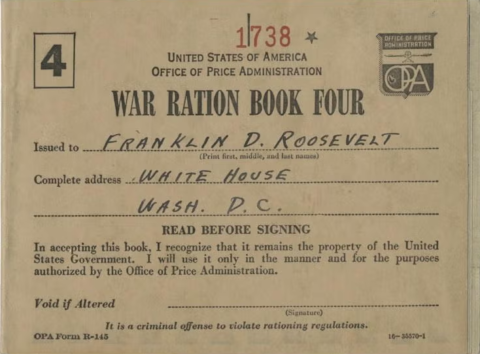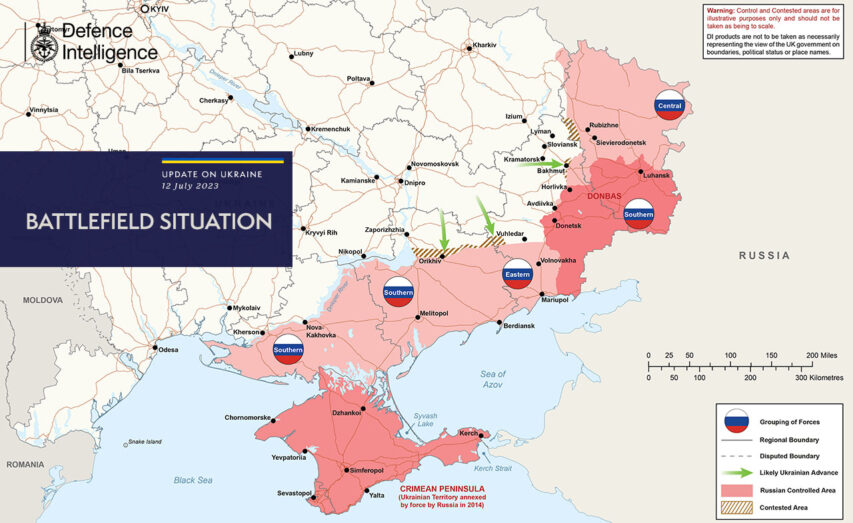The Tank Museum
Published 7 Apr 2023Join Chris Copson as he presents our latest in Anti-Tank Chats. In this episode, we will delve into the fascinating history and practical applications of the RPG-7, a powerful anti-tank weapon.
(more…)
July 16, 2023
Cheap, Effective, Everywhere: The RPG-7
QotD: The girls’ locker room at school
One of the few skills I’ve retained from my teen years in the public school system of mid-Nineties America is the ability to get undressed in front of people without ever actually being naked. It is an art form particular to girls of a certain age, mastered in the locker room in the five minutes between gym class and the rest of the day: a sort of anti-strip tease in which you take off your sports bra while still wearing a T-shirt, always taking care not to expose so much as a millimetre of bare breast.
This method of bra removal was part of a larger, elaborate set of rules, unwritten but ironclad, whereby the locker room was a place to be naked as little as humanly possible. Being in your underwear was okay, but only if you were clearly making haste to put on more clothing. The bathing facilities, it was understood, were for decoration only and not to be used; people still talked about the time a few years back when a girl named Katie, a transfer student from some other country, or possibly another planet, actually took a shower after gym class one day — here you would lower your voice to a dramatic whisper — in the nude.
This cautionary tale of Katie revealed the true nature of our shared pathology: it wasn’t just that we didn’t want to be seen naked, or to see each other naked. It was that allowing yourself to be seen naked signified something sinister about you. You had to be some kind of pervert, an exhibitionist weirdo who lacked the good sense to be ashamed of your body — which was, of course, disgusting, and should be hidden at all costs.
Obviously, this was not a healthy way to be. Obviously, we all had eating disorders. Obviously, the kids were not, in this particular case, all right — or right at all. It’s strange, then, that in 2023, the neuroses of a bunch of 15-year-old girls trying to hide their developing bodies from each other in an upstate New York locker room seem to have somehow become the basis for a new Western paradigm. Nudity is now seen as invariably sexual, highly suspicious, and probably dangerous, particularly to children.
Kat Rosenfield, “The case for getting naked”, UnHerd, 2023-04-12.
July 15, 2023
Environmental fanatics want to impose “austerity on steroids”
Brendan O’Neill points out the hypocrisy of the progressives who protest against anything smacking of government austerity — often merely a slowing down in the rate of increase of funding that they condemn as “cuts” — yet fervently desire to impose a form of austerity that would literally lead to hundreds of thousands or even millions of deaths:
There are countless contradictions on what passes for the left these days. We’re against sexism, they cry, and then they’ll while away entire days hounding every uppity broad who dares to question the trans ideology. We’re anti-racist, they say, even as they yell “Uncle Tom” at any person of colour who deviates from their white liberal orthodoxies. Be kind, they tweet, in between their venomous crusades against TERFs, gammon, boomers, deplorables, “semi-fascists”, you name it.
We’re against austerity, they insist, and yet then they agitate for an austerity of apocalyptic proportions. This, surely, is the most stark incongruity of the modern left. They rail against every library closure or reform of welfare payments as an intolerable assault on people’s living standards, and then they take to the streets in their thousands in support of a degrowth agenda that would plunge vast swathes of humankind into penury. They’re far meaner than any right-wing penny-pincher they claim to oppose.
[…]
Environmentalism is austerity on steroids. Consider one of JSO’s key demands: “No new oil or gas”. This would be – there’s no other word for it – psychotic. Not only would such a crazed policy instantly throw hundreds of thousands of people out of work, by decommissioning the rigs and mines where they make their living – it would also make it all but impossible to keep society going. The infantile moralism of modern greens would have us believe that vile oil and gas are only used to propel 4x4s and airplanes packed with the rich and other “bad things”. In truth, every facet of our lives requires energy from oil and gas. The delivery of foodstuffs, house-building, schools, hospitals, life-support machines, heaters to protect the elderly from death in winter – all need energy derived from fossil fuels. Or consider libraries. The left wept when Osborne’s cuts led to library closures, but you try running a library in your post-fossil-fuel dystopia. Without oil, gas, electricity and trees torn down to make books, libraries would cease to exist.
As Alex Epstein argues, to “rapidly eliminate fossil-fuel use” would make the world “an impoverished, dangerous and miserable place for most people”. Fossil fuels provide 80 per cent of the world’s energy. Just three per cent comes from solar and wind power, so beloved of green anti-modernists. And even that measly slice of global energy production is, in Epstein’s words, “totally dependent on fossil fuels, especially natural gas, for 24/7 back-up”. That is, if the wind doesn’t blow and the sun doesn’t shine, we have to crank up the fossil fuels. Ours is a world in which three billion people still use less electricity than your average American fridge. Agitating for less energy production in such a time is callous beyond belief. It would issue a death sentence on the world’s poor. George Osborne is Father Christmas in comparison with these crusaders against the gains and wonders of modernity.
The French Intifada
Ed West on the origins of the rising violence in French towns and cities:

I ran an image search for “Paris rioting” and there was a plentiful supply of fiery, eye-catching photos. Not all of these are from the most recent outbreak of violence, but they are certainly representative of how the legacy media is covering the situation.
The recent violence in Paris and elsewhere, which saw attempts to ram the home of a mayor, once again highlighted the trouble the country has with integration. But the French police union describing themselves as being “at war with vermin” illustrated the different mindset to the English-speaking world, and the far more belligerent approach to the problems of diversity.
Like Britain, the Netherlands, Germany and Sweden, France has had difficulties assimilating the children of immigrants from beyond Europe, yet its recent history has proved especially violent and troubled. Britain has jihadi terrorism – 2017 was especially grim – but it has never reached such intensity. Today, as over 130,000 police officers stand guard to protect the Republic on the day of its celebration, it is worth considering the journey that brought it to such a state.
Analysts have often compared Britain’s state multiculturalism with France’s system of laïcité, which tends to downplay the existence of “communities” even to the point of not taking demographic statistics. Although neither country’s approach has entirely been a success, France’s refusal to recognise immigrants as anything but French has often been blamed for the widespread sense of alienation.
Others point to the housing system, which tends towards concentrations of North and West Africans in suburban banlieues, or the less laissez-faire economic policy which results in higher unemployment (in exchange for better social security).
While they no doubt play a part, the biggest single difference is history, as Andrew Hussey recounted back in 2014 in The French Intifada, in particular France’s history with North Africa. To put it in British terms, imagine that Britain’s rule in Pakistan had involved not a small number of administrators and soldiers but instead hundreds of thousands of British settlers arriving in the country, many with the intention of making it a “new America” (i.e. driving the natives out).
That Britain had declared Pakistan an integral part of the country, and that, rather than scarpering in indecent haste when the empire began to disintegrate, Britain had dug in to preserve its rule in a sadistic war of independence, one in which natives and white settlers committed countless atrocities against each other.
And that this violence had spilled into Britain with assassination attempts and terrorism, by both sides, destabilising the country to the point where there was talk of a coup. And that this was happening just as large-scale immigration to the colonial power was taking place.
Britain experienced nothing like as much violence in the dying days of empire, and indeed the only real comparison with our history was the moment when there was almost all-out conflict between Britain’s Protestant and Irish Catholic populations before the First World War.
If French politicians so casually talk of “civil war” between its right wing and the Algerian-descended population, it is because it has already played out this conflict before – one that was never healed, and so invites a sequel.
One heartbeat away
Joe Biden is old and his age is clearly a factor in his declining ability to carry out his duties as President. If he dies or is forced to leave office before his term is up, Kamala Harris would succeed him. If that isn’t a scary thought, you haven’t been paying attention:
When it comes to preferences based on identity of one kind or another, it is difficult to know where to start with this insufferable and corrupt woman who may be the next President of the United States of America. First, she is a woman, or at least identifies as one. Second, she is a woman of colour. Third, she is black. Fourth, she is an Indian American woman. And last, but definitely not least, she is a woman of Afro-Caribbean heritage. In other words, she is highly qualified to achieve success in Biden’s America.
The daughter of two college professors, Kamala Harris is poised to become the first female president of the United States for one reason alone: her demographics. She is a very visible poster child for all that is wrong with the system of preferences and favoritism based on identity and immutable characteristics which has replaced the ideals of meritocracy and colour blindness.
Sadly, Vice President Harris is not alone. Those willing to trade their identity for professional advantage are growing in number by the day. Indeed, such individuals are being encouraged and are found aplenty throughout state and federal government, public schools and academia, corporations, and increasingly in law enforcement and the military.
Recently, Harris attended the Essence Festival of Culture, organised by Essence, a magazine aimed at black women. Asked to explain the role of culture in enhancing and securing the achievements of African-Americans, she treated her audience to one of her delectable word salads that have become the hallmark of her vice presidency.“Culture is …” she informs us after a slight pause, “it is a reflection of our moment and our time. Right?” she asks, seeking reassurance from her interlocutors. “And present culture is the way we express how we’re feeling about the moment and we should always find times to express how we feel about the moment. That is a reflection of joy. Because,” she adds, in an inexplicable allusion to Psalm 30, “[joy] comes in the morning,” before bursting into that cackling laughter which can engender suicidal thoughts in vulnerable people, including the current author.
She goes on: “We have to find ways to also express the way we feel about the moment in terms of just having language and a connection to how people are experiencing life. And I think about it in that way too.”
My goodness! Are those the words of a woman who could have access to the nuclear codes in just under two years? I am afraid they are. They are the words of someone whose rise to legislative and executive power has been determined entirely by the immutable characteristics of sex and race and the calculus of political advantage.
Only a nation which has abandoned the meritocratic values that made it great could produce such a paragon of ineffable mediocrity as Kamala Harris. Only a nation which has lost its aspirations to greatness will continue to elevate men and women to positions of high rank on the basis not of talent, ingenuity, and character, but demographic attributes that check the right boxes and ignore merit, privileging cosmetics over competence. If this madness continues (and it will take a lot more than the recent SCOTUS ruling to make it go away) such a policy will eventually spell doom for America, maybe sooner than you think.
Sherman Firefly – What were those wavy lines for?
Armoured Archives
Published 8 Mar 2023This video is going to take a quick look at those wavy lines you might see on some tank barrels, what did they do, and why? And was this ever an officially sanctioned project?
(more…)
QotD: Historical figures didn’t think of themselves as doing evil
Back in my professing days, I used to try to “bring history alive”, as it were, by “humanizing” historical figures. Let’s stipulate that Adolf Hitler was evil, I’d tell my students. Still, he obviously didn’t think of himself that way. Like all of us, he thought well of himself. In his own mind, he was a good person doing good things (or, at worst, doing bad things for good ends). We won’t learn anything meaningful about Hitler’s policies, I told them, unless we try to understand how he saw himself, as an historical actor.
If I thought it would help, I’d quote Machiavelli at them, to the effect that it’s impossible for a person to be thoroughly, consistently evil, even when it’s obviously to his best advantage. If I thought they were capable of grasping it, I’d follow by observing that this quote is just Machiavelli restating – in his inimitable style – the thoroughly conventional, utterly uncontroversial, indeed banal, opinion that people like to think well of themselves, and balk at doing things which make them bad people in their own eyes.
By that point, I’d have lost all but the sharpest undergrads, so I’d spell out the lesson Machiavelli intended us to take from his observation: While no one wants to think of himself as doing evil, when it comes to something that’s obviously advantageous, pretty much any rationalization will do.
Severian, “Acid”, Founding Questions, 2020-12-17.
July 14, 2023
How Hitler Approved His Own Assassination – WW2 Documentary Special
World War Two
Published 13 Jul 2023So far, the German resistance haven’t had much luck with their attempts to kill the Führer, Adolf Hitler. But now, the German war hero Claus von Stauffenberg, together with Friedrich Olbricht and Henning von Tresckow, drives the resistance forward. It’s time to kill Hitler. It’s time for Operation Valkyrie.
(more…)
Bread rationing in the United States during WW2
I haven’t studied the numbers, but I strongly suspect that most US government food rationing during the war was effectively theatre to encourage more support of the war effort: except in a very few areas, the US was more than self-sufficient in most foodstuffs. At the Foundation for Economic Education, Lawrence W. Reed recounts one of the least effective government moves in food rationing:
According to an old joke from the socialist and frequently underfed Soviet Union, Stalin goes to a local wheat farm to see how things are going. “We have so many bags of wheat that, if piled on top of each other, they could reach God himself!” the farmer told Comrade Stalin.
“But God does not exist,” the dictator angrily replied. “Exactly!” said the farmer. “And neither does the wheat.” Nobody knows what happened to the farmer, but at least Stalin died in 1953.
Soviet socialism, with its forced collectivism and ubiquitous bread lines, gave wheat a bad name. Indeed, it was lousy at agriculture in general. As journalist Hedrick Smith (author of The Russians) and many other authorities noted at the time, small privately owned plots comprised just three percent of the land but produced anywhere from a quarter to a half of all produce. Collectivized agriculture was a joke.
America is not joke-free when it comes to wheat. We are a country in which sliced bread was both invented and banned, and a country in which growing wheat for your own consumption was ruled to be an act of “interstate commerce” that distant bureaucrats could regulate. No kidding.
On this anniversary — July 7 — of both the birth in 1880 of sliced bread’s inventor and of the day in 1928 that the first sliced bread from his machine was sold, it’s fitting to recall these long-forgotten historical facts.
The Iowa-born jeweler and inventor Otto Rohwedder turned 48 on the very day the first consumer bought the product of his new slicing machine. The bread was advertised as “the greatest forward step in the baking industry since bread was wrapped” and it quickly gave rise to the popular phrase, “the greatest thing since sliced bread.” Before 1928, American housewives cut many a finger by having to slice off every piece of bread from the loaves they baked or bought. Sliced bread was an instant sensation.
Rohwedder earned seven patents for his invention. The original is proudly displayed at the Smithsonian Institution in Washington, D.C. He likely made a lot more money from the bread slicing machine than he ever did as a jeweler. He died in 1960 at the age of 80.
Enter Claude Wickard, Secretary of Agriculture under Franklin Roosevelt from 1940 to 1945. On January 18, 1943, he banned the sale of sliced bread. Exactly why seems to be in dispute but the most likely rationale was to save wax paper and other resources for war production. He rescinded the ban two months later, explaining then that “the savings are not as much as we expected.”
I’m sure Hitler and Hirohito were relieved.
MG-3: Germany Modernizes the Classic MG-42
Forgotten Weapons
Published 7 Apr 2023When the Bundeswehr was formed, it chose to simply continue using the MG42 as its standard GPMG. This was initially done by converting older MG42s to 7.62x51mm NATO as the MG1 (adopted in 1958), but progressed to production of a brand new version of the gun by Rheinmetall (adopted in 1968). The MG3 included improvements to the belt feed system, added integral antiaircraft sights, and allowed a rate of fire between 700 and 1300 rpm depending on the choice in bolt, buffer and booster. It was the standard German MG until finally being replaced by the MG5 in 2012 — and it is/was in use by nearly 4 dozen other countries as well. Today we are going to compare this transferrable, C&R MG3 to an original MG42 to see the improvements that were made.
(more…)
QotD: Resolving “disagreements” on Wikipedia
I keep telling anybody who’ll listen, anytime the subject comes up: Always go to the Wikipedia talk page when you do your “researching” on Wikipedia! Take what you read in the main article with a huge grain of salt if you find a big back-and-forth melee going on in the talk page, for you can take it to the bank that if there’s a disagreement going on between conservative and liberal editors, it will be “resolved” by way of the liberal editors locking the article down after they’ve made sure to get the last word in. Which means what you’ve just read is mostly nothing but pure bovine product. If you’re gleaning this information for any kind of actual purpose, it goes without saying that this is something you should know. Information is meaningless without the “meta data”; without context.
And if there isn’t anything going on back there at all, you should probably still take the main article with a grain of salt because you might be reading a bunch of “everybody knows” gibberish without too much thought behind it.
M.K. Freeberg, “Latest Wikipedia Talk Page Mess: Socialism”, Rotten Chestnuts, 2012-12-01.
July 13, 2023
Bill Slim’s plan for the Battle of Meiktila in March 1945
Dr. Robert Lyman on the subject of his most recent book, The Reconquest of Burma 1944-45: From Operation Capital to the Sittang Bend:
When I was writing my latest book with General Lord Dannatt he said to me, “Rob, if I’ve got one criticism of A War of Empires it’s that you don’t emphasise enough the role of Bill Slim in coming up with the plan for victory in 1945, and executing it perfectly.” Fair. As Slim’s military biographer, I told Richard that I didn’t want to be accused of rewriting that book again. I was conscious of this problem as I was writing A War of Empires.
But it is fair criticism. It may be that I underplayed Slim’s role when I was considering all the other critical features in this great campaign. The idea behind the dramatic victory by 14th Army in Burma in 1945 was Slim’s and Slim’s alone. He pursued his own plan through to its remarkable conclusion.
[…]
Slim’s original plan was to fight the main strength of the Japanese army on the Shwebo Plain, a dry, flat plain between the loops of the Chindwin and Irrawaddy. Not only would the terrain be well suited to the deployment of armour, for which the Japanese had little effective reply, but the Japanese would be trapped with the river-line at their back. Slim had assumed that the Japanese would be unprepared to make a voluntary withdrawal. The scene was set for Slim to be able to deploy his superior mobility and firepower to destroy the main Japanese army in Burma.
By the end of the year, however, it became apparent that the Japanese were not going to conform to Slim’s plan for the battle, and General Kimura had seen the trap which his forces would be caught in if they attempted to stand and fight in the Shwebo Plain. Showing unusual flexibility and moral courage Kimura promptly withdrew his reconstituted 15th Army behind the Irrawaddy. Kimura hoped, not without reason, to be able to smash Slim’s army as it attempted to cross the river, which in itself presented an immense obstacle to the British. He would then counter-attack and destroy Slim as the British withdrew during the monsoon to the Chindwin.
Kimura’s move behind the Irrawaddy destroyed at a stroke Slim’s plan. Undaunted, and recognising the supreme importance of destroying Kimura’s army rather than taking ground for its own sake, Slim came up with another plan. In basic outline, his new plan (Operation Extended Capital) entailed crossing the Irrawaddy and fighting the decisive battle in February in the plain around Mandalay and the low hills around Meiktila, the key enemy air and supply base in Central Burma. Both the road and rail links between Mandalay and Rangoon ran through Meiktila. If Meiktila fell, the whole structure of the Japanese defence of Central Burma would collapse.
This “simple” bench made me humble when I tried to build it
Rex Krueger
Published 12 Jul 2023It’s just nails and pine, but this piece was full of tricks.
(more…)
“… if Ukraine were to join NATO in the middle of a war, then congrats – most of Europe and North America are at war”
As I’ve said several times, I have great sympathy for ordinary Ukrainians caught up in a war not of their making, but I’m not a fan of the awesomely corrupt Ukrainian government. NATO nations providing weapons, ammunition, and training is fine, but in no way is Ukraine ready to become a member of the alliance and will not be until after this war is over and they conduct a very significant set of anti-corruption reforms in their national government. CDR Salamander points out the insanity of western pundits demanding that NATO add Ukraine to the alliance in the middle of a major war:
I understand the desire for Ukraine — and others for that matter — to be part of NATO. I also understand why the frontline states in Central Europe such as the Baltics republics and Visegrad Group would like Ukraine in as well. Defense in depth and long fronts are a thing.
As much as I can sympathize with the above, I also understand the reasons that Ukraine and other nations may never be right for NATO membership, or at best be a decade or two out. Single points of failure triggers to another world war — where every new member state increases the aggregate risk to all members — is not a minor thing to consider.
There is also the very real fact that Ukraine is in a war right now, for her an existential war with Russia. This CNN article is a perfect example of some of the absolutely foolish questions people are even considering right now. I’m not even going to quote from it as there are dozens like it out as the NATO summit is going on. It is a waste of your time.
You don’t need to be an international lawyer to understand that if Ukraine were to join NATO in the middle of a war, then congrats — most of Europe and North America are at war. As history tells us, when Europe and North America goes to war, eventually the world joins in.
For today’s post, I’d like to pull some quotes from a superb Financial Times article, NATO’s dilemma: what to do about Ukraine’s bid to join?
Membership represents the long-term security that Kyiv wants and was promised 15 years ago. But Russia’s war has complicated things
When Ukrainian President Volodymyr Zelenskyy strides into Nato’s annual summit in Vilnius on Wednesday, his country will have been fighting a full-scale war of survival against Russia for 503 days.
2008, in the last year of the Bush-43 administration. The year it looked like we had Iraq stabilized yet were already planning to take the keys in Afghanistan back from NATO after the alliance culminated in the summer of 2007.
The year of imperial overreach in denial;
It was over breakfast in Bucharest in 2008 that the seeds of Nato’s current dilemma were sown.
At an early morning meeting on the second day of the alliance’s summit that year, then secretary-general Jaap de Hoop Scheffer met with US president George W Bush and his French and German counterparts Nicolas Sarkozy and Angela Merkel.
The outcome of that breakfast, and a result of Merkel softening her opposition to Bush’s proposal to offer membership to Ukraine and Georgia, was a statement by the entire Nato alliance.
Both countries “will become members of Nato”, it said, without providing a timeline. That declaration, at the same time both unequivocal and non-committal, was hailed as a major achievement. It has since sunk into infamy.
Amazing how people forget that other nations get a vote. Your actions will cause reactions by those who either think they will benefit from or be endangered by them. Roll that simple context in to the 1,000 year record of people west of the Vistula misreading Russia and you have this;
Four months later Putin’s tanks rolled into northern Georgia. In 2014 his special forces annexed Ukraine’s Crimean peninsula. Nato, as Putin knew well, refuses to accept new members with “frozen conflict” on their territory. Aside from condemnatory rhetoric, Nato did little to punish Moscow. Putin, who had been present at the Bucharest summit as a guest, had called Nato’s bluff.
Putin was right. No one will join NATO who has border disputes or are best known for their globe-spanning corruption.
NATO and the USA’s natsec “blob” was, again, wrong. Being wrong isn’t the problem. It is an imperfect business where mistakes are going to be made. The important thing is to learn from them and if the same people and institutions are perpetually wrong, you get new people and institutions to help you make decisions. That is the danger. It isn’t that we “remember everything but learn nothing” it is more that we “remember only what confirms our priors and only learn to try harder next time.”
Praise for the #151 Flat-Bottomed Spokeshave | Paul Sellers
Paul Sellers
Published 10 Feb 2023It’s easy to underestimate the value of the #151 spokeshave, no matter the maker. But these simple tools work amazingly for a wide range of woodworking tasks, and you only need the flat-bottomed version as it will work equally well for both convex and concave surfaces.
With this video, see just how versatile the flat-bottomed spokeshave is and why you should own one for your woodworking tasks that need shaping.
(more…)








